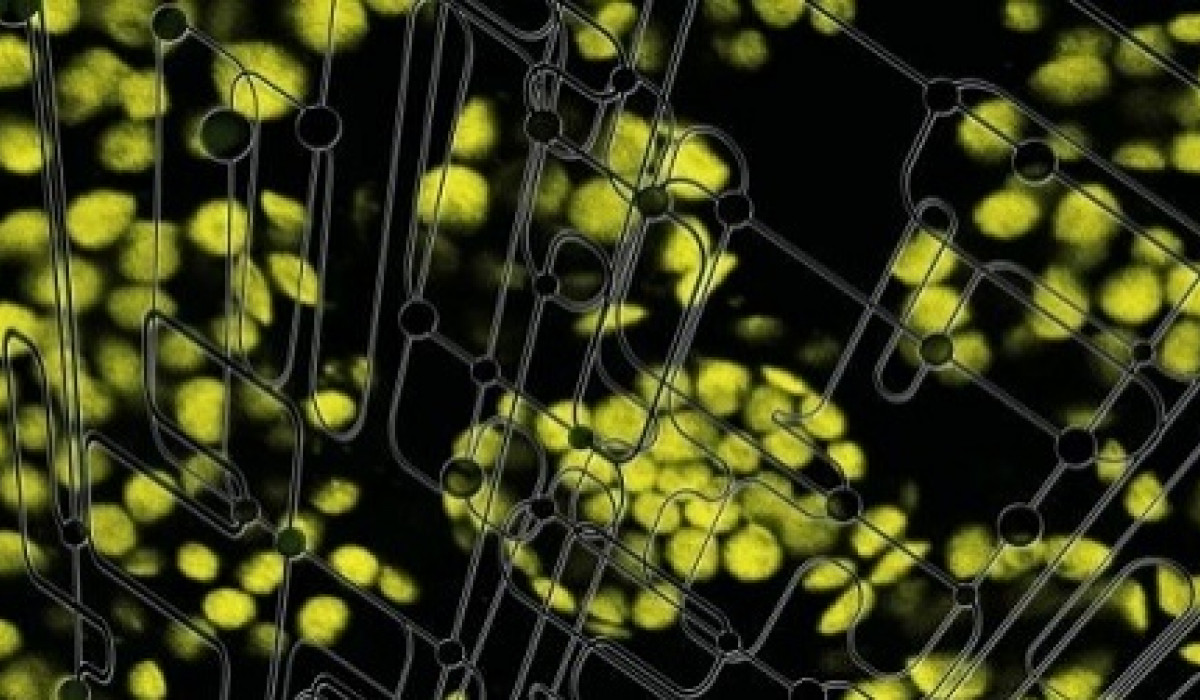ADVANCECAT, the consortium for the advancement of new therapies in Catalonia, is born
- Their objective is to help these drugs move from pre-clinical stage to clinical use
- The project, led by the University of Barcelona and Ferrer, counts on a €2.8 million budget, and is formed by eighteen firms and entities
- There are currently under development advanced drugs for cancer, AIDS, cardiovascular or neurologic diseases, among others

To help advanced therapies move from the pre-clinical to the industrial production and clinical use stage: that is the objective of ADVANCECAT. This consortium is a project accelerator that, under the leadership of the University of Barcelona (UB) and Ferrer, is composed of two universities, two biomedical research institutions or private foundations, and four companies.
ADVANCECAT, which is part of the Biocat-coordinated NEXTHEALTH community, aims at creating an organizational structure for the accelerated development of new advanced therapy drugs. Bringing together both public as well as private actors in the field results in better resource management and optimization of the resources of the Catalan National Healthcare System. Their main focus is on boosting cell therapies and tissue engineering, fomenting new approaches in gene therapy, including immune therapy, and to develop manufacturing processes that facilitate their improved clinical use.
This project also aims at reinforcing the Catalan industrial sector by creating new mechanisms and protocols for the mass production of these drugs. By improving the interaction between research centers, hospitals and the regional business networks involved in the production of these therapies, the goal is to accelerate the introduction of these new drugs into the healthcare system; drugs that would otherwise require long development periods in many cases.
The consortium has an initial budget of more than €2.8 million. Of this, €969,352.28 are co-funded by ACCIO (The Catalan Government Agency for Competitiveness) and by the European Union, within the framework of the FEDER (European Fund for Regional Development) program for Catalonia for the 2014-2020 timeframe.
Advanced therapy projects in Catalonia
Advanced therapies are drugs for human use based on cells (cell therapy), genes (gene therapy) or tissues (tissue engineering). There are currently in Spain some twenty new drugs under clinical development. Of these, eight are being developed in Catalonia. Furthermore, there are currently in Catalonia various cell production and tissue engineering units. There is one at the University of Barcelona’ School of Medicine and Healthcare Sciences (UB), another at the Hospital Clinic of Barcelona, and a third at the Blood and Tissue Bank (BST). The UB facility is also able to produce gene therapy drugs.
The following are some of the most noteworthy projects in advanced therapies to be boosted by ADVANCECAT:
- Immunotherapy for clinical uses
One of the most promising new techniques in the field of immunotherapy is the so-called CARs (Chimeric Antigen Receptor)-engineered lymphocytes. This technique consists of extracting T lymphocytes from a patient’s blood and “training” them to identify and destroy cancer cells by means of gene modification to express a chimeric receptor which is specific for cancer cells. This technology is currently being produced and used within the ARI (Intensive Research Assistance) project led by the Hospital Clinic and the Pi i Sunyer Biomedical Research Institute (IDIBAPS), being researched at the Santa Creu i Sant Pau Hospital.
Immunotherapy is being currently used to produce a cell vaccine against the AIDS virus. This vaccine is currently being applied in an ongoing clinical trial at the Hospital Clinic with cells entirely produced in Barcelona. It is also being tested for the treatment of infectious complications in transplant patients, by administering them T cells that can detect the virus causing the infection. This strategy has been developed by the Blood and Tissue Bank, and involves the creation of a registry of eligible volunteer donors.
Regeneration of tissues for various diseases
Various types of stem cells are being currently used in ADVANCECAT clinical trials with the aim of regenerating tissues, many of them associated with the locomotor system. These technologies may help improve the life of people suffering from highly painful conditions, as well as to improve the treatment of elite sportspersons. These trials count on the collaboration of the University of Barcelona, Bioiberica, the FCBarcelona Universitas-Muscletech Network, the Bosch i Gimpera Foundation (FGB), the Leitat-Muscletech Network Foundation (FLeitat), the Research Institute of the Vall d’Hebron University Hospital (VHIR) and the Institute of Bioengineering of Catalonia (IBEC). The treatments being investigated range from the use of stem cells extracted from bone marrow or fat to the use of pluripotent stem cells. ADVANCECAT researchers are also carrying out translational studies to use these cells in patients suffering from cardiovascular or neurological diseases. These projects involve the University of Barcelona, the Barcelona Macula Foundation, Bioiberica and the Barcelona Center in Regenerative Medicine (CMRB).
-Artificial tissues for the reconstruction of damaged organs
A relevant part of tissue regeneration medicine is the extracellular matrix. The combined efforts of the many members of ADVANCECAT, led by the Institute of Bioengineering of Catalonia (IBEC) and the German Trias i Pujol Institute of Research in Helthcare Sciences (IGTP), will allow these therapies to be accelerated. These therapies range from the decellularization of human tissues in order to extract the natural extracellular matrix to the development of new methods for the artificial production of extracellular matrix by means of biological matter printers (bio-printers), including 3D printing techniques.
Entities forming the ADVANCECAT project: University of Barcelona (project leader), Ferrer (co-leader), Blood and Tissue Bank, Barcelona Macula Foundation, Bioiberica SA, Butler Scientifics SL, Barcelona Center of Regenerative Medicine, Bosch i Gimpera Foundation, FCBarcelona Universitas-Muscletech Network, Research Institute of the Vall d’Hebron University Hospital, Foundation of the Institute of Bioengineering of Catalonia, the Foundation of the German Trias i Pujol Institute of Research in Helthcare Sciences, Foundation of the Institute of Research of the Santa Creu i Sant Pau Hospital, Leitat-Muscletech Network Foundation, the August Pi i Sunyer Institute of Biomedical Research, the Bellvitge Institute of Biomedical Research, Qrem Regenerative Technology, Autonomous University of Barcelona. This project is part of the Biocat-coordinated NEXTHEALTH community.


